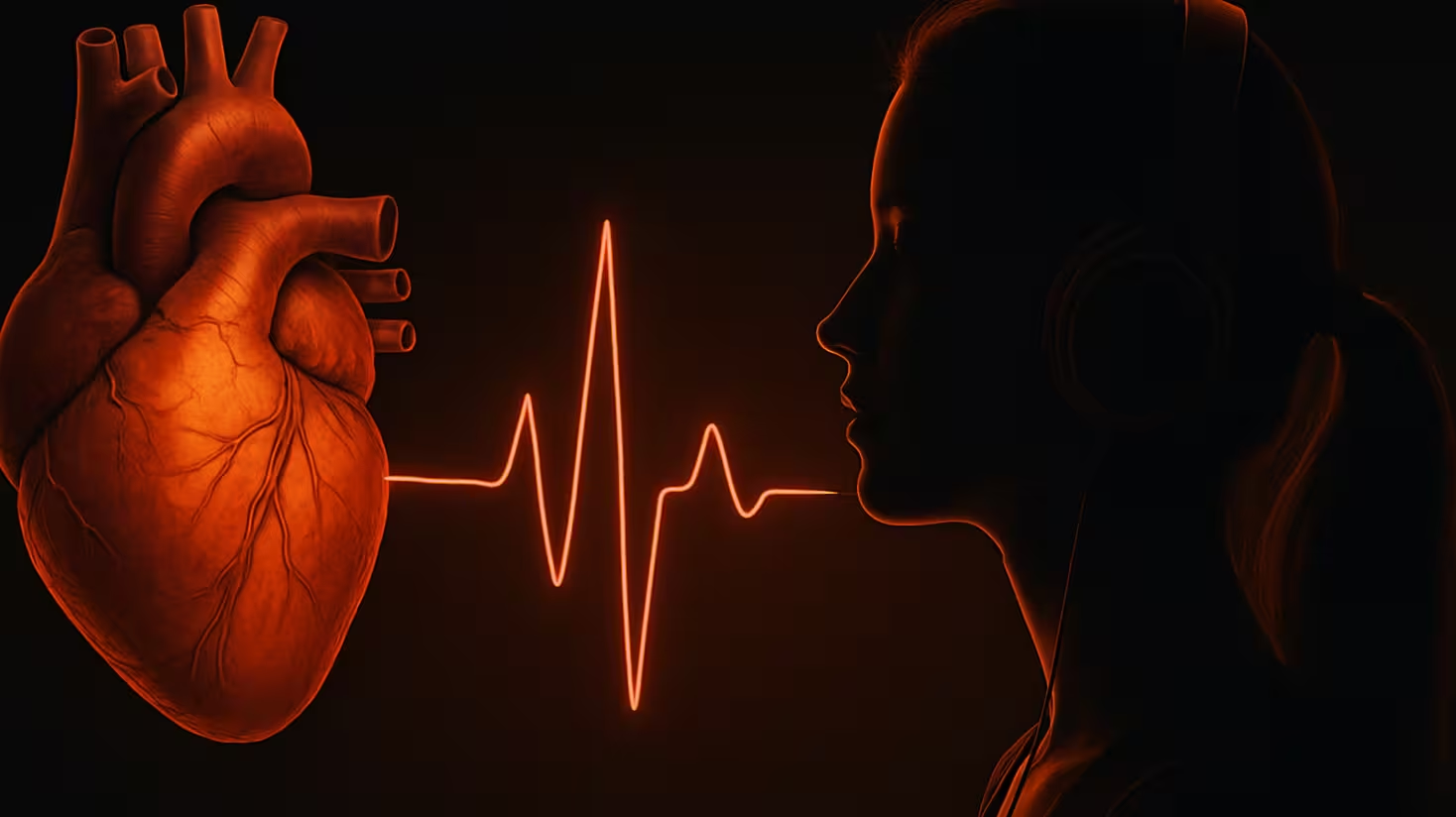Your heart does more than pump blood. It responds to your feelings, your thoughts, and even the music you play. Have you ever noticed how your heart races during a suspenseful scene in a movie or how it calms down when you listen to soft piano melodies? That isn’t your imagination. It’s your body reacting to emotional and sensory inputs in real-time.
In this post, we’ll break down the science behind why your heartbeat changes with music and emotions. We’ll also explore how this phenomenon can impact your health and how you can use it to your advantage.
Table of contents
The Science Behind Your Heartbeat
Your heart rhythm is controlled by your autonomic nervous system, which has two main branches: the sympathetic nervous system and the parasympathetic nervous system. The sympathetic system speeds things up (like during stress), and the parasympathetic system slows things down (like during relaxation).
When you experience emotions such as fear, excitement, or joy, your brain sends signals to your heart to respond accordingly. This process can make your heartbeat faster or slower depending on the type of emotion you’re feeling.
Music’s Direct Impact on Your Heart Rate
Music has a unique ability to tap into your emotions and influence your nervous system. Fast-paced music tends to increase heart rate and blood pressure. In contrast, slow, soothing music can help decrease both.
Several studies have proven this link:
- Upbeat music like dance or rock stimulates the brain and activates the sympathetic nervous system, which increases your heart rate.
- Calm or classical music activates the parasympathetic nervous system, encouraging your body to slow down and relax.
Researchers have found that even the tempo of a song affects your heartbeat. Songs with a tempo of around 60–80 beats per minute (BPM) tend to mimic the resting heart rate and promote relaxation.
Emotions and the Heart: What Happens?
Let’s say you get excited because of good news—your body releases adrenaline, your pupils dilate, and your heart beats faster. This isn’t a coincidence; it’s your sympathetic nervous system at work. The same system kicks in when you’re scared or anxious.
On the other hand, when you feel calm, loved, or safe, your body releases oxytocin and other “feel-good” chemicals. These help slow your heartbeat and bring your body into a state of ease. That’s the parasympathetic nervous system in action.
Different emotions trigger different responses:
- Fear or anxiety = fast heartbeat
- Excitement = elevated heart rate, but often with a sense of anticipation
- Joy or love = steady, slower heartbeat
- Sadness = mixed response depending on the depth of emotion
Music and Emotions Work Together
Music doesn’t just affect your heart on its own. It interacts with your emotions, and together, they shape your physiological state. For example:
- A sad song after a breakup might slow your heart rate and increase feelings of melancholy.
- An inspiring anthem during a workout could energize you, raising your heart rate and boosting motivation.
- Soothing music before bed may help regulate your heart rate and improve sleep quality.
This interaction explains why music therapy is becoming more popular in mental health and cardiovascular care.
Real-Life Benefits of Understanding This Connection
Now that you know how music and emotions affect your heartbeat, you can use this knowledge to your advantage. Here’s how:
1. Manage Stress
Listen to calming music during stressful situations. It helps slow your heartbeat, lowers cortisol levels, and helps you relax.
2. Improve Sleep
Create a bedtime playlist with songs in the 60–80 BPM range. These tempos sync with your natural resting heart rate and can help signal your body that it’s time to sleep.
3. Boost Productivity
Need to focus? Try instrumental music or nature sounds to help maintain a steady heart rate and reduce distractions.
4. Enhance Physical Performance
Listening to high-BPM music during workouts can increase motivation and endurance. It elevates your heart rate and matches your physical intensity.
5. Support Mental Health
If you’re feeling anxious or down, music can help regulate your mood and physiological responses. It’s a non-invasive, easily accessible tool for emotional support.
How Doctors and Therapists Use This Science
Cardiologists, psychologists, and music therapists are already applying these findings. Heart rate variability (HRV) is one metric doctors use to understand a patient’s stress level and emotional balance.
In hospitals, soft music is often played in waiting areas or during procedures to keep patients calm. Therapists use music therapy to help patients process emotions, reduce anxiety, and improve quality of life.
Key Takeaways
- Your heartbeat changes based on both your emotions and the music you hear.
- Fast music and strong emotions speed up your heartbeat, while calm music and peaceful feelings slow it down.
- You can use music as a tool to regulate your emotions and improve your health.
Wrapping It All Up
The mind-body connection is powerful, and your heartbeat is a perfect example. Music and emotions directly influence how your heart behaves, moment by moment. With a little intention, you can use music to shape your emotional health, reduce stress, and even support your heart.
So next time you hit play on your favorite song, remember: you’re not just listening—you’re tuning your heart.






2 thoughts on “Why Your Heartbeat Changes With Music and Emotions”
Comments are closed.